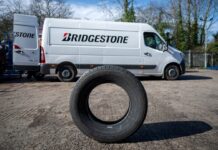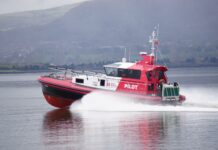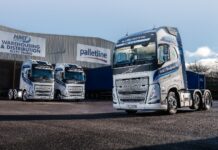Tyre choice is all about resolving many conflicting interests including wet grip, durability and rolling resistance. Balancing many of these performance requirements is a constant challenge, writes Steve Howat, General Manager – Technical Services, Continental Tyres.
The key development focus areas are defined based on the fundamental requirements in the specific targeted application area for the tyre. The technical, highly sophisticated rubber compounds in modern premium tyres today contain silica, enabling priority to be assigned to suit many seemingly differing needs.
Our compounds are highly complex and may contain in the tread area three or four different specifications to try and bridge some of these performance conflicts. A typical example of this is known as cap and base technology, where the top compound, which is in contact with the road surface, will be designed to absorb energy to optimise the tyres performance for grip in both dry and wet conditions. The compound below this, known as the base, is designed to release energy effectively to optimise the tyre for rolling resistance, which will contribute to improving fuel consumption.

A tyre specifically developed to reduce rolling resistance and lower CO2 levels, has in the past had a negative impact on mileage. The challenge is to bridge this performance conflict, to ensure that the fuel consumption benefits from energy efficient tyres arenot compromised by a higher tyre replacement factor. From a tyre development point of view, this is achieved by continuously developing even higher levels of compound technology, in conjunction with contour, pattern and construction optimisation.
Bridging this conflict is now more important than ever with the new EU CO2emissions legislation and VECTO measurement tool now live. This will mean changes in tyre selection, with fuel efficient tyres taking priority for original fitment by truck manufacturers but with durability still being considered by some fleets as the primary requirement.
 As CO2 reductions rightly join efficiency and durability as key tyre choice consideration for fleets, which will drive greater complexity in tyre selection within a truck fleet. For example, a fleet who operates mostly on long-haul motorways will have very different requirements to a fleet who completes shorter start-stop journeys or who operates on rougher terrain.
As CO2 reductions rightly join efficiency and durability as key tyre choice consideration for fleets, which will drive greater complexity in tyre selection within a truck fleet. For example, a fleet who operates mostly on long-haul motorways will have very different requirements to a fleet who completes shorter start-stop journeys or who operates on rougher terrain.
For Continental, detailed customer consultation is the key to both understanding a fleet’s needs and providing the correct or most suitable tyre to match these needs. Only with full analysis of vehicle and tyre application and use, will optimal tyre selection and hence the most cost effective tyre management programme be achievable.















